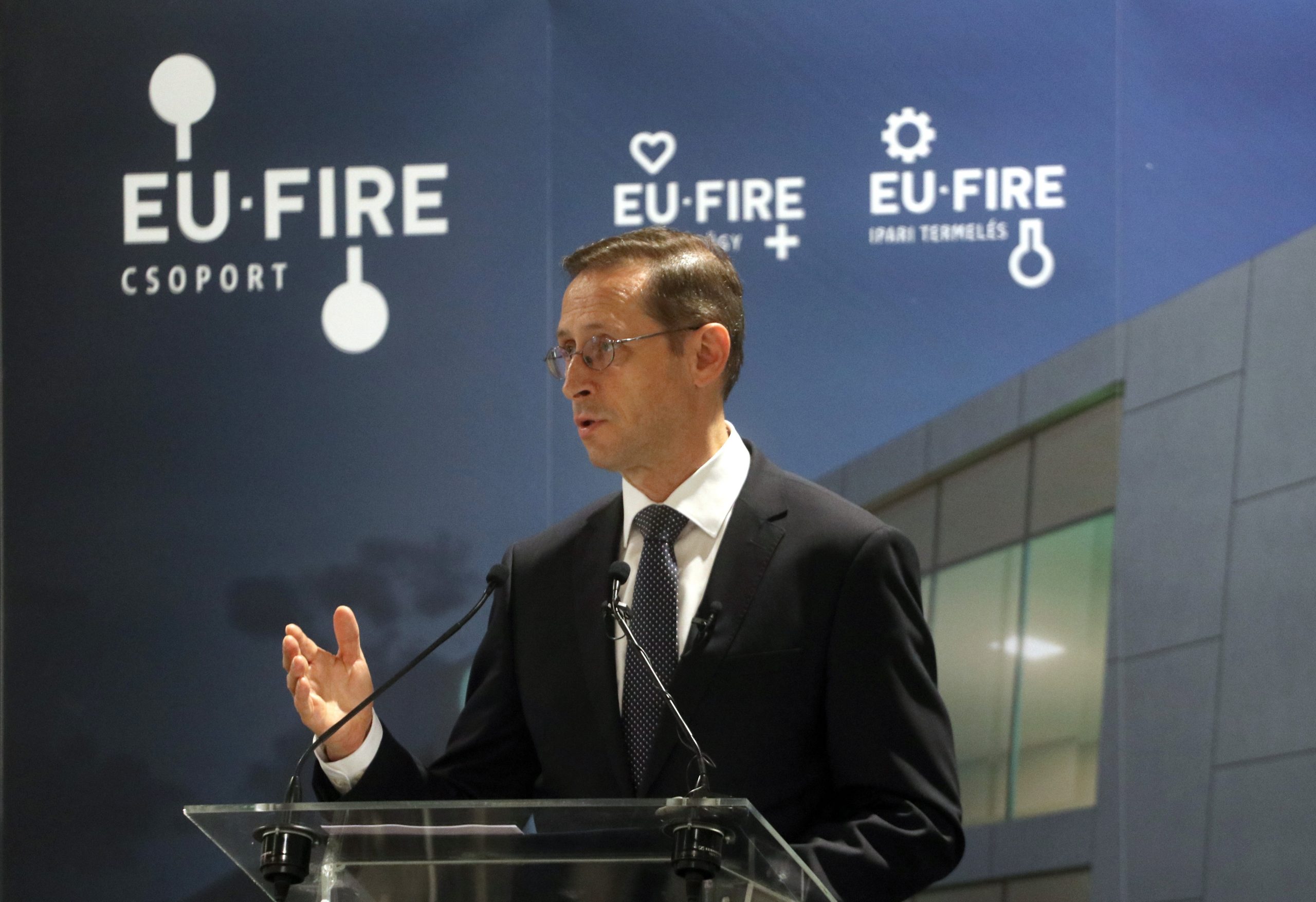
Hungarian reserves now stand at 36 percent, Mihály Varga noted, adding that the government had placed orders for further purchases.Continue reading

Hungarian industry, including the healthcare industry, is capable of providing the country with a complete and safe supply chain, the Minister of Finance said on Thursday in Mátészalka, at the handover ceremony of the HUF 8 billion (cc. EUR 20 million) healthcare development project of EU-FIRE Kft.
Mihály Varga said that the new plant in the small town in Szabolcs-Szatmár-Bereg county can produce large quantities of surgical aids, syringes, and protective devices, and production is fully automated and partly robotized.
The investment, made with the support of the Healthcare Industry Support Program (ETP), was accompanied by significant state support, and Hungary needs projects like the one in Matészalka in many other places and areas, the Minister stressed.
He also said that going beyond the “my house, my castle” principle, these products have to be taken to hospitals, and as many world-class, domestically produced devices should be supplied to the Hungarian healthcare system as possible.
The Hungarian health industry is now strengthening the economy’s capacity for growth, contributing to Hungary’s competitiveness at the European level, and is also able to export, the finance minister stressed. He stressed that products are made here that can provide healthcare anywhere in the world.
Varga pointed out that ETP’s developments, worth more than HUF 66 billion (EUR 160 million), have contributed to the creation and preservation of 5,700 jobs.
We are working to ensure that this is true for the food industry, the automotive industry, and the mechanical engineering industry and that there are more and more areas where Hungary is able to produce products as a leading producer or direct supplier, thus strengthening the entire domestic economy,”
the Minister said.
He also pointed out that the war in Ukraine is causing a crisis and an economic slowdown not only in Europe but in the entire world economy. Although the Hungarian economy is doing well in terms of industrial and production indicators within the global economy, it can already be seen that it will soon enter a recessionary environment through financial processes. If the government is not prepared for this, it will be the most serious mistake, Varga said, adding that high inflation and the European energy crisis will hamper the functioning of European economies, so the issue of energy supply and the filling of reservoirs will be a key issue in the coming months.
The Hungarian energy reservoirs are currently 44 percent full, and the government is doing its utmost to ensure that most of the annual demand is met, Varga said, adding that there is no financial and budgetary obstacle to this, and the cabinet will provide the funds.
Regarding the investment in Mátészalkai, Péter Kovács, strategic director of EU-FIRE Ltd., said that the company’s nearby Kocsordi plant would start manufacturing precision medical metal and plastic devices for the domestic healthcare industry as early as 2021. The two-phase plant in Mátészalka is also capable of producing 300 million syringes, 350 million hypodermic needles, and almost 200 million nitrile examination gloves, annually.
The plants in Kocsort and Matészalka employ around 100 people.
Sándor Kovács, a Fidesz MP for the region, stressed that the plant’s location in Mátészalka would reduce dependence on foreign health industry manufacturers.
The development of the local industrial park has also contributed to the investment, and as a continuation of this, a 60-hectare park development is underway, doubling the area of the industrial park in the municipality, said Péter Hanusi (Fidesz-KDNP), mayor of Mátalkala.
EU-FIRE Ltd. is a Hungarian-owned family business, which was involved in several major real estate development projects as a designer and general contractor until 2007. In the last almost one and a half decades, they have been active as an investor and engineering expert in geothermal energy development projects, and expanded their core business into agribusiness, manufacturing, high-tech, and metalworking.
Featured image via János Vajda/MTI